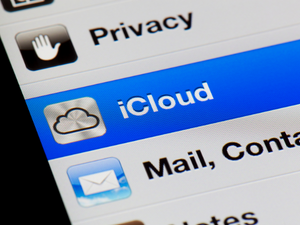Apple Fixes Major Security Flaw Exposing Passwords: What Business Leaders Need to Know
 Mobility is crucial for business owners, CEOs, and decision-makers these days. With Apple devices often serving as go-to tools for multitasking on the move, it's essential to understand the security risks and remedies associated with these technologies. Recently, Apple announced a major security flaw affecting its VoiceOver and Passwords applications, potentially jeopardizing sensitive data. Here’s what you need to know to safeguard your business data and maintain a secure mobile environment.
Mobility is crucial for business owners, CEOs, and decision-makers these days. With Apple devices often serving as go-to tools for multitasking on the move, it's essential to understand the security risks and remedies associated with these technologies. Recently, Apple announced a major security flaw affecting its VoiceOver and Passwords applications, potentially jeopardizing sensitive data. Here’s what you need to know to safeguard your business data and maintain a secure mobile environment.
How Apple’s Applications Were Meant to Work
Apple's VoiceOver and Passwords with auto-fill are powerful tools for businesses, designed to streamline tasks and improve productivity. Here’s a look at how these applications are supposed to function.
VoiceOver: Hands-Free Accessibility
VoiceOver is an accessibility feature on Apple products, including iOS, macOS, and tvOS, that functions as a screen reader. Users can navigate their devices with spoken instructions, an asset for busy professionals who need a hands-free experience. Similar to Siri, VoiceOver responds verbally to user commands, allowing executives to access information on the go without manual typing. This convenience has made it a popular choice for multitasking professionals.
Passwords and Auto-Fill: Streamlining Security
The Passwords app, introduced in recent versions of iOS and iPadOS, provides Apple users with a secure platform for managing passwords, passkeys, and even WiFi credentials. Business users can also share passwords across teams, making collaborative access straightforward while maintaining data security. Passwords stored in Apple’s system are encrypted and protected by two-factor authentication to prevent unauthorized access. Auto-fill further enhances productivity by securely recalling passwords, allowing business owners and employees to log in seamlessly without manually entering credentials.
However, the recent security flaw exposed by Apple reveals that, at times, these applications may not work as securely as intended, posing a potential risk to businesses relying on them for secure data management.
The Apple Security Flaw: What Happened?
Recently, Apple’s Passwords and VoiceOver features have been under scrutiny due to a major security flaw that exposed users' sensitive information, specifically passwords. In certain cases, VoiceOver would unexpectedly read saved passwords out loud, leading to unintentional data exposure. While Apple initially stayed silent on the issue, researchers have since identified the problem, attributing it to a logic error within the Passwords application rather than VoiceOver itself.
Scope and Impact of the Flaw
The flaw impacts a range of Apple devices, including iPhones dating back to the iPhone XS and several iPad Pro, iPad Air, and iPad Mini models. Apple confirmed that a logic issue within the Passwords app triggered the unintentional password reading, though the exact severity remains unscored. Users also reported additional security concerns, such as the iPhone 16 microphone recording unintended audio snippets. For business users, this type of vulnerability can lead to unintended data leaks, potentially compromising sensitive corporate information and client data.
Business Implications of the Security Flaw
For businesses, data breaches or inadvertent password exposure can be disastrous. If login credentials fall into the wrong hands, unauthorized parties could gain access to critical systems, putting your business at risk for data theft, identity fraud, or even ransom attacks. This particular flaw highlights the importance of maintaining awareness of potential risks associated with any technology your business depends on, no matter how reliable the provider may seem.
Apple’s Solution: New Security Update for Data Protection
Recognizing the significance of this security flaw, Apple moved quickly to address it through a comprehensive iOS update. By releasing a patch to resolve the Passwords bug, Apple has taken steps to reassure users that their data remains secure. For business owners, this update serves as a reminder to regularly monitor and install updates to safeguard against similar vulnerabilities in the future.
Steps to Safeguard Your Business Data
To minimize the risks associated with this type of security flaw, there are a few best practices you should adopt within your business:
- Install the Latest iOS Update: Ensure that all company Apple devices are updated to the latest iOS version. This update contains patches that correct the logic error responsible for password exposure and addresses other security concerns.
- Encourage Employee Awareness: Inform employees about the security update and remind them to verify their devices are current. Educating your team on the importance of updates can help prevent unintentional exposure of sensitive information.
- Implement Data Access Controls: Strengthen internal data protection by limiting access to sensitive credentials and information on a need-to-know basis. If a flaw were to occur, access restrictions could prevent widespread data compromise.
- Use Multi-Factor Authentication (MFA): MFA offers an additional layer of protection, requiring a secondary verification step for users attempting to access sensitive applications or data. For business-critical accounts, MFA can prevent unauthorized access even if passwords are exposed.
These precautions will bolster your company’s data security, helping to mitigate risks associated with unexpected software vulnerabilities.
 Broader Lessons on Data Security in Business
Broader Lessons on Data Security in Business
Apple's recent security flaw underscores the need for a proactive approach to cybersecurity. Technology providers work tirelessly to secure devices, but as this issue illustrates, even industry leaders are not immune to occasional vulnerabilities. Here are a few broader lessons for business leaders to consider when managing IT and technology assets.
Prioritize Regular Updates and Audits
Maintaining up-to-date software on all devices is essential, but conducting regular security audits of your entire IT ecosystem is equally important. Use these audits to identify potential vulnerabilities, assess your security policies, and make adjustments to stay current with cybersecurity best practices.
Invest in Employee Training
Employees are often the first line of defense against security breaches. By educating your team on safe digital practices and encouraging vigilance regarding software updates and suspicious activity, you can minimize the likelihood of security lapses within your business. Offer training sessions to keep staff informed about the latest security threats and protective measures.
Partner with IT Security Experts
Working with an IT services provider with expertise in cybersecurity can strengthen your organization’s security posture. These experts can monitor for emerging vulnerabilities, handle updates, and assist in creating a comprehensive security plan tailored to your business’s unique needs.
Top FAQs Answered:
1. How can I ensure my Apple devices are secure after this flaw?
To secure your Apple devices, update them to the latest iOS version as soon as possible, which addresses the flaw and corrects related security issues. Additionally, review your security settings, such as two-factor authentication, and remind team members to avoid storing sensitive information on unsecured devices.
2. Why is updating device software critical for business security?
Software updates often include patches for security vulnerabilities that hackers could exploit. By keeping devices current, you prevent known threats from compromising your data, especially when using applications that manage passwords or sensitive information.
3. How does this Apple security flaw affect my business directly?
This flaw may have inadvertently exposed business-related passwords or information through the VoiceOver function, increasing the risk of unauthorized data access. Although Apple has issued a fix, it’s essential to implement additional security measures, such as MFA and limited data access, to further protect sensitive business information.
By taking a proactive approach to device security, business leaders can ensure their technology investments are both productive and protected. Keeping software updated, training employees, and engaging expert IT services will help maintain the integrity of your business data and mitigate the risk of future security flaws.
